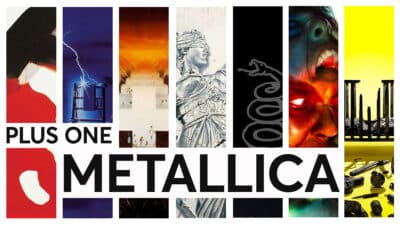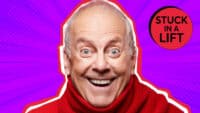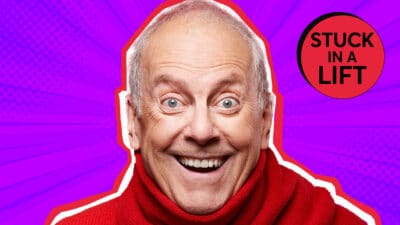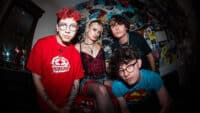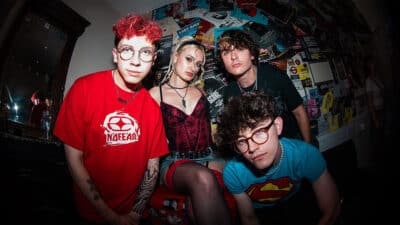Interview
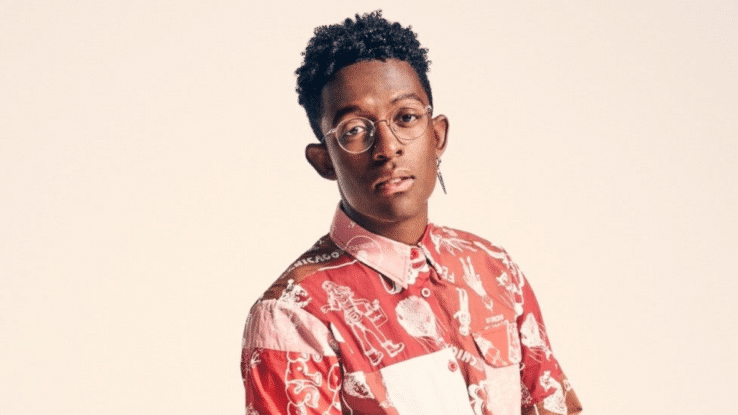
Interview
Breland: “What I’m doing wouldn’t have been possible 30 years ago”
The country artist known for his genre-blurring sound talks breaking boundaries and touring with Shania Twain
Country music was built on tradition. It’s something that older fans love about the genre, the comfort of knowing exactly what you’ll find in a country album: whiskey, Southern girls, Jesus and a good story. All of which are present on Breland’s Cross Country – and yet the singer and producer has faced his fair share of resistance from country music listeners.
It’s in part due to the fact Breland doesn’t stop there. Cross Country also features 808s, rap, slow jams, the phrase “no cap”, and plenty of other elements much more closely associated with hip hop and R&B than anything out of Nashville. Breland doesn’t sound like the traditional country star, but it’s for this precise reason that he’s been embraced by some of the industry’s biggest names. His debut album features Lady A, Thomas Rhett and Keith Urban, among others. So far this year he’s opened for Walker Hayes and Shania Twain. Now he’s gearing up for a run of headline shows in the UK, including a stop at London’s Electric Ballroom. Ahead of his arrival, we caught up with Breland to talk about his debut album, country purism, and what he loves so much about playing in the UK.
How’s it been going in the US so far?
It’s been going well. We’re playing a lot of arenas and amphitheatres and really big venues. Very different than the type of shows that I usually headline. And the energy is different when you’re opening for someone in a bigger venue – it’s always a matter of who shows up early. Are those people interested in what you’re doing, or are you going to have to try to win them over? When you play a headline show, even if it is a smaller venue, everyone’s gonna be there specifically to see you. You have more time to do what you normally would want to do. But it’s given me a different experience, just trying to make more out of less, you know, having more people watching me, but less time to perform, trying to find that right balance.
You’ve been working with some huge names, and you’ve got some massive features on your new album as well. What was it like collaborating with some of those artists?
It’s always great to be able to get in the studio with people that you look up to and maybe grew up listening to, because to me, anyone who’s been doing this for more than 10 years has figured something out. That is always the goal; longevity, being able to continue doing this at a high level for 10, 15, 20 years. You might think about someone like Thomas Rhett as being a newer artist, but even he’s been doing this over a decade now. His first single came out in 2012. So, you know, it’s amazing being able to share stories and experiences with them, and then whenever we’re out on the road or playing a festival we have opportunities to play the songs together, you know, and share stages and audiences.
I personally am a student of the game. I just want to learn, you know. Someone like Keith Urban who has been at this for over 20 years, he’s got all the stories and all the gems that he can drop about experiences that he’s had over the last 20 years. Things that he’s learned how to navigate, you know, as far as just finding a work life balance, making time for his family, figuring out when he wants to tour and when he wants to work on new records, keeping his voice and his mind sharp and healthy – all of those things he’s a pro at. He’s got all of that information – Lady A as well. A lot of these collabs are just me trying to learn to do that. But also, you know, being creative with these guys and blending our sounds together to create something that hasn’t been made before.
Generally, when you’re working with these older, more established country artists, do you find that they’ve been receptive to that blending of genres that you lean towards?
Yeah. Nashville is one of those towns where there’s kind of a way that things get done, and a certain type of song that gets made all the time. And I come with a completely different perspective. I write a lot differently. The types of melodies and cadences and chords that I’m drawn to are a lot different. So I think a lot of times, both older and younger country artists appreciate what I’m doing, because it gives them an opportunity to do something different. It gives them the freedom to try something that they probably wouldn’t have tried on their own, just because of the way that I create and the types of influences that I’m bringing into these rooms.
You know, Thomas Rhett’s made a bunch of Christian leaning songs, but I don’t know if he’s ever done anything that really invoked all of those elements of the Black gospel church. So I think it was fun for him to be able to get on a song like ‘Praise The Lord’, where he wouldn’t normally do that. You wouldn’t expect someone like Keith to be on a song like ‘Throw It Back’, you know? It’s very much a hip hop centric song. And, you know, he slid right in on his verse and did what he did. And it made sense once it finally existed. I think he’s down to take those types of risks.
And obviously, the opening record on the project, ‘Here For It’ with Ingrid Andress – Ingrid is a balladeer. She does piano ballads and really heartfelt, thoughtful lyrics. For us to come in with something that’s so happy and so undeniably joyful doesn’t necessarily fit with a lot of her discography, but it sounds great, and it’s a song that we wrote together. I was really happy to be able to have her on something. These songs all serve a purpose beyond just the fans listening – our catalogues as artists are a living, breathing artefacts, and people who look through any artist’s discography, album to album and year over year, can see some of that growth. A lot of the collabs that I’ve done with people are on songs that you wouldn’t necessarily expect but are often signifying experimentation and growth at a point in their career that they might not otherwise have had the freedom to create.
And it’s so indicative of what’s happening with country at the moment, where you’ve been one of the artists that has really pioneered this blending of genres. Why did you decide you wanted to take your other influences such as hip hop and gospel and bring them into country music?
I’m a songwriter. And when I was living in Atlanta and writing songs for other people, I wasn’t sure exactly what my sound was gonna be, but I knew that I wanted it to be weird. I knew I wanted it to be lyrical. I wanted to be able to tell stories in the songs and spin concepts and flip words and land hooks in a certain way. And in Atlanta, the way that people write songs a lot of times for R&B and hip hop, they’re literally just trying to rhyme. So you could freestyle something that doesn’t even make sense, but if it sounds good when you say it, it’s gonna go on the song. That’s the way that people write but I’ve never been that type of a writer. Even when I was in Atlanta I was doing a lot of stuff differently. I was writing more from a Nashville perspective of wanting things to make sense – of needing to really wrap up the verses. A lot of people were telling me I needed to get into country music, because that’s all they do. But I still like having the freedom, sonically, to be able to lean in different directions.
So that was kind of how Cross Country was born. Because I’m a lyricist, I love being able to write songs that move chronologically and linearly, where all of the lyrics relate back to the central concept. I just have a different way of expressing it. And I’m really fortunate that people in the country music world were open and receptive. To me, being able to do something like this, it’s very much a reflection of how much country music has grown, though there are probably some areas that I can think of where we could do a little better.
And, you know, a Black country artist there are certain regions of America that are still difficult for me to make headway and sell tickets. I can sell more tickets in London right now than in any Southern American market. Which is kind of crazy, how quickly things have grown overseas, where there aren’t as many barriers to entry, or where people aren’t as focused on region or skin colour or politics. They just care about the music. It’s always really refreshing to me to be able to play shows in the UK. Every time I come over I feel like I never want to leave, because there’s an attentiveness that UK and European fans have. They’re paying attention to the stories, and they’re also interested to hear the stories behind the song. People in the States oftentimes just want to be entertained. I’m generalising here, but that’s been my experience.
I know you’ve spoken in the past about how you feel there is a want amongst younger, more liberal country fans to hear country music that speaks to their political leanings. Do you feel like that movement is still growing in the US, or is that something that you see happening more overseas?
You know, I think there definitely is a younger group of country listeners that are coming up. And I’m excited to see it, because I do think they tend to overlap with what I’m doing a little bit more. But, you know, America goes through phases. Unfortunately we experience it when there’s a massive situation, like a George Floyd situation from 2020, where all of a sudden, all eyes are on racial equity, where people are down to have those conversations, but then it kind of is a fad. It becomes the conversation for a bit and then it’s like, okay, well, we’re gonna focus on everything else.
Black History Month in America is in February. February rolls around, and then all of a sudden, we get all of this additional press interest from all of these country organisations. They’re all kind of performing lip service to diversity and inclusion so that they can feel like they’ve done something. But they might only be paying attention when there’s a national tragedy or a national holiday… It’s not the primary focus. There are issues that we deal with as artists of colour and as Black people in America that do require constant pressure and constant attention. But I understand the American psyche, and it’s all very trendy.
I guess my point is, yes, there are more artists of colour in country music than there ever have been. And some of these artists are finding a lot of success in certain areas, particularly in streaming, where we can build our own audiences. But it’s still very difficult for a lot of us to sell tickets in the States. And it’s very difficult for a lot of us to get an opening slot on a major tour, or to find success in country radio, or get recognised at major country music award shows. There are some very clear issues of equity here. And then occasionally, there will be like this feeling of oh, we need to pay attention to this again so we can hit our quotas.
When I play overseas I don’t have to go up against some of those same systems that America has been built on. It’s refreshing. I really, really love playing overseas, because I love having an audience that doesn’t have to give me the benefit of the doubt. They either like the music or they don’t. Here in the States I feel like I’m always having to try to prove how authentically country a song is.
Do you feel like the roadblocks in the States would be lesser if what you played sounded like ‘pure’ country to people?
Yeah. Even regardless of what I look like, just the fact that I’m from New Jersey – there are no country artists from New Jersey. It’s always about trying to see how authentically southern you can present yourself to be, and that’s why it’s great to be on tour with someone like Shania Twain because she’s always been fighting against those systems. She’s from Canada, and she’s very fashion forward and very sonically progressive in a lot of ways that a lot of country artists aren’t and weren’t when she first came out. It makes a lot of sense for me to be on the road with someone like her. But it can be tough on my own trying to blaze some of these paths as someone who doesn’t have a completely southern experience, who didn’t grow up doing some of the same things that a lot of country artists and fans might value as, or recognise as being, traditionally country.
However, there is this new wave of younger people who like country music, who also like hip hop and R&B and I’m one of the only artists that’s able to deliver all of those sounds in one. I think I’m kind of the perfect artist for that audience. It’s just a matter of finding that audience and exposing them to my music, and then obviously getting them to come out and support what we’re doing a little bit further and deeper.
Why do you think it is that the younger generation are gravitating towards music that doesn’t necessarily fit neatly into one particular genre?
I think it’s just because nowadays we don’t have to listen to music by genre. We form our own playlists; we have access to the entire world of songs at our fingertips. We’re scrolling the internet and coming across songs. Back in the day, people were just listening to music based on a radio station that they liked and a certain section of a record store that they would go to to purchase their music. And now a lot of barriers are down and you’re seeing a lot of cross genre music. A lot of the biggest superstars in the world are doing it. What genre is Ed Sheeran? What genre is Beyonce? What genre is Post Malone? What genre is Doja Cat? You can’t really put a lot of these artists into a genre, because sometimes it’s hip hop, and sometimes it’s pop, and sometimes it’s R&B, and sometimes it’s rap. You just kind of vibe with it based on whether or not you vibe with it. I think a lot of younger people have a lot more freedom when it comes to how they consume music. What it is that I’m doing is very much a byproduct of the times we live in – this wouldn’t have been possible 30 years ago because people weren’t as receptive to music that didn’t live within clean genre distinctions.
Breland will play dates across the UK this September. Find tickets here.





